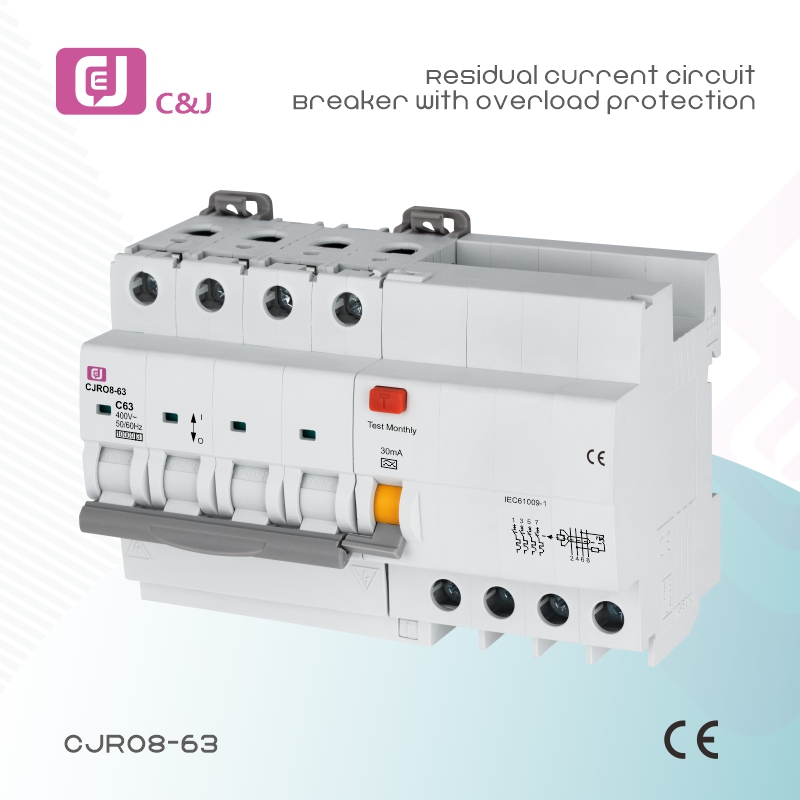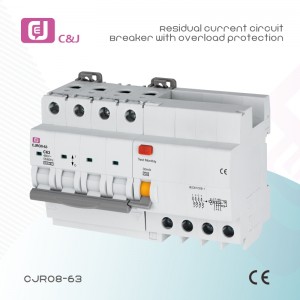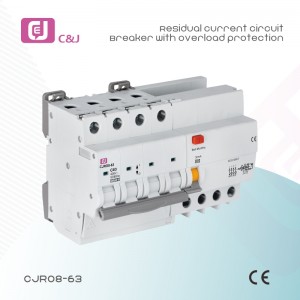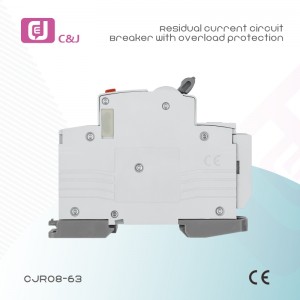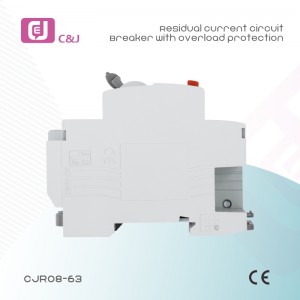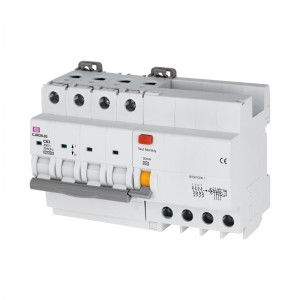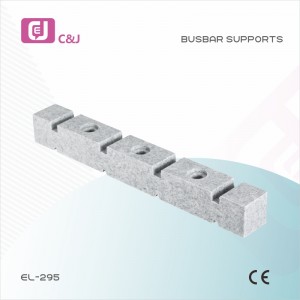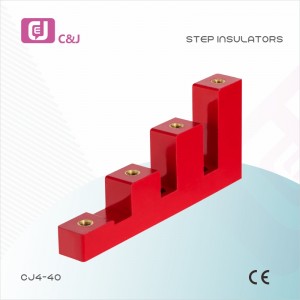High quality CJRO8-63 4P 63A 30mA Residual RCBO,Current Circuit Breaker with Overload Protection
Installation
| Fault current in dicator | YES |
| Protection degree | IP20 |
| Ambient temperature | 25°C~+40°C and its average over a period of 24h does not exceed +35°C |
| Storage temperature | -25°C~+70°C |
| Terminal connection type | Cable/U-type busbar/Pin-type busbar |
| Terminal size top for cable | 25mm² |
| Tightening torque | 2.5N.m |
| Mounting | On DIN rail FN 60715 (35mm) by means of fast clip device |
| Connection | Top and bottom |
Overload Current Protection Characteristics
| Test procedure | Type | Test Current | Initial State | Tripping or Non-tripping Time Limit | Expected Result | Remark |
| a | B,C,D | 1.13In | cold | t≤1h | no tripping | |
| b | B,C,D | 1.45In | after test a | t<1h | tripping | The current steadily rises to the specified value within 5s |
| c | B,C,D | 2.55In | cold | 1s<t<60s | tripping | |
| d | B | 3In | cold | t≤0.1s | no tripping | Turn on the auxiliary switch to close the current |
| C | 5In | |||||
| D | 10In | |||||
| e | B | 5In | cold | t<0.1s | tripping | Turn on the auxiliary switch to close the current |
| C | 10In | |||||
| D | 20In |
Residual Current Operating Breaking Time
| Type | In/A | I△n/A | Residual Current (I△) Is Corresponding To The Following Breaking Time (S) | ||||
| AC Type | any value |
any value |
1ln | 2In | 5In | 5A,10A,20A,50A 100A,200A,500A |
|
| A Type | >0.01 | 1.4In | 2.8In | 7In | |||
| 0.3 | 0.15 | 0.04 | Max Break-time | ||||
| The general type RCBO whose current IΔn is 0.03mA or less can use 0.25A instead of 5IΔn. | |||||||
How to choose the right RCBO: Earth leakage circuit breaker with overload protection
How to choose the right RCBO: Earth leakage circuit breaker with overload protection
When it comes to electrical safety, investing in the right equipment is crucial. The residual current circuit breaker (RCBO) with overload protection is one such device that plays a vital role in protecting electrical systems and preventing electric shock. RCBOs combine the functions of a residual current device (RCD) and a miniature circuit breaker (MCB) to provide advanced protection against electrical faults.
Choosing the correct RCBO for your application is critical to ensuring optimal safety and performance. Here are some factors to consider when choosing an RCBO:
1. Rated current: The rated current of the RCBO should match the maximum current capacity of the electrical system. This value may vary depending on the size of the circuit and the devices it powers. It is important to select an RCBO with an appropriate current rating for your specific requirements to avoid overheating or tripping problems.
2. Sensitivity: The sensitivity of an RCBO is measured in milliamperes (mA) and determines the level of current imbalance required to trip the device. The lower the sensitivity, the faster the RCBO will respond to dangerous failures. For residential applications, a sensitivity of 30mA is typically recommended. However, in some industrial environments, higher sensitivity may be required.
3. Type: There are many types of RCBO, such as AC type, A type, F type, B type, etc. Each type provides different protection levels. Type AC is suitable for most residential applications and protects against indirect contact and fire hazards. Type A is more sensitive, providing protection against direct and indirect contact and additional protection against pulsating direct current (DC) faults. Type F provides enhanced protection against fire risks, making it suitable for specific industrial applications. Finally, Type B provides unparalleled protection against all types of faults, including smoothed DC currents.
4. Manufacturer and Certification: Choose RCBO made by a reputable company known for its commitment to quality. Look for certifications such as International Electrotechnical Commission (IEC) standards or accreditation from independent testing laboratories to ensure that the RCBO meets recognized safety standards.
5. Additional features: Depending on your specific requirements, consider additional features such as short-circuit protection, over-current protection, and surge protection. These additional features provide additional security and convenience.
In summary, choosing the right RCBO for your electrical system is critical to ensuring reliable electrical protection. By considering factors such as ampere rating, sensitivity, type, manufacturer reputation, certifications, and additional features, you can make an informed decision that guarantees optimal safety and performance. Invest wisely in your electrical safety by choosing the right RCBO.


